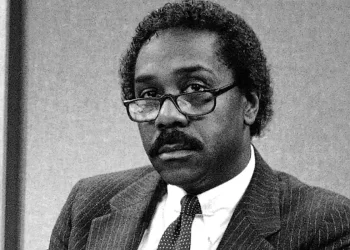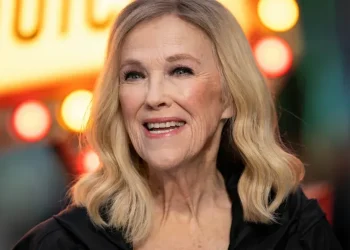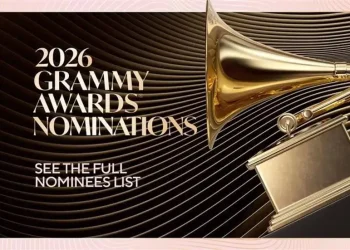Mariah Carey’s “All I Want for Christmas is You”: From Modest Hit to Timeless Holiday Anthem
When Mariah Carey’s “All I Want for Christmas is You” was first released in 1994, it was a modest hit, but three decades later, it reigns supreme as the defining song of the holiday season. Its journey from a seasonal tune to a Christmas staple is nothing short of extraordinary. But what exactly makes this song so special, and why has it endured for 30 years?
The Unstoppable Rise of a Christmas Classic
In 1994, “All I Want for Christmas is You” peaked at number 12 on the Billboard Radio Songs chart and reached number two in the UK, just behind East 17’s “Stay Another Day.” Initially, it didn’t make a significant splash in the mainstream, but each passing year, the song gained momentum, growing stronger and more popular. Today, it has topped the charts in over 25 countries and was named the greatest holiday song of all time by Billboard in 2023.
As December rolls around, it’s nearly impossible to escape the song. Whether it’s playing in shopping malls, office parties, or holiday playlists, “All I Want for Christmas is You” has become synonymous with the season. But how did this 90s hit become so iconic?
The Perfect Christmas Pop Song
Dr. Brittnay L Proctor, a professor of media studies and popular culture, attributes the song’s success to its sheer fun factor. “A lot of Christmas songs aren’t necessarily fun,” she says, noting how Carey’s track stands out for its joyful energy. It combines elements of gospel, R&B, and pop, creating a timeless feel. Music writer Kate Solomon calls it a “perfect pop song that just so happens to be a Christmas one.”
Unlike many other attempts to create modern holiday hits, “All I Want for Christmas is You” strikes a balance between old and new, evoking both nostalgia and freshness. The song cleverly incorporates classic influences while still sounding modern.
The Secret Behind the Sound
Crafting a modern Christmas classic isn’t easy. While many contemporary artists like Taylor Swift, Justin Bieber, and The Killers have tried their hand at holiday music, none of their original songs have had the staying power of Carey’s track. According to musicologist Nate Sloan, Christmas songs require a unique approach that often goes against the trend of innovation in pop music. During the holiday season, listeners long for the nostalgic sounds of the 1940s and ’50s—think Bing Crosby and Brenda Lee. “All I Want for Christmas is You” taps into this desire while maintaining a timeless quality.
Carey’s attention to detail in production is part of the song’s charm. She doubled her vocals using a technique inspired by Phil Spector’s “Wall of Sound” production, which was famously used on classic Christmas songs like Darlene Love’s “Christmas (Baby Please Come Home).” This gives the song a vintage feel, even when it was first released.
The track also features complex chord progressions, with Sloan noting that the song includes 13 chords—unusual for most pop songs today. This adds a harmonic depth that elevates it from a simple pop tune to a holiday classic.
Mariah Carey: The Queen of Christmas
Mariah Carey’s personal connection to Christmas also plays a role in the song’s success. Aisha Harris, pop culture critic, notes that Carey is savvy in how she markets her brand. “She loves Christmas, and that passion has translated into a stream of income, goodwill, and resources,” Harris says. Carey’s childhood experiences, marked by a dysfunctional family that marred the holiday season, inspired her to make Christmas “perfect” as an adult.
This desire to create the ultimate Christmas experience is reflected in Carey’s relentless efforts to keep the song in the public eye. From annual Christmas concerts and viral social media posts to collaborations with artists like Justin Bieber and Michael Bublé, Carey ensures that “All I Want for Christmas is You” remains a holiday staple.
The Boost from “Love Actually” and Smart Promotion
The song’s status as a Christmas classic was further cemented when it was featured in the 2003 romantic comedy Love Actually. At the time, Carey’s career was at a low point following the flop of her film Glitter and a much-publicized personal breakdown. But the inclusion of her song in Love Actually, which became a beloved holiday film, helped the song reach a new audience.
Carey’s savvy promotion over the years, including the release of special versions of the song, has kept it fresh and relevant. From the “Extra Festive” version in 2010 to an Apple TV special in 2020, Carey continuously finds ways to keep the song in the spotlight. Additionally, her yearly tradition of posting a video on November 1st declaring that “It’s time!” to kick off the holiday season has kept fans excited and engaged.
An Underrated Element: The Introduction
One often-overlooked part of the song’s enduring appeal is its iconic 50-second intro. The slow, melismatic vocal buildup creates a sense of anticipation, and when the sleigh bells and drums enter, it feels like a triumphant announcement that we’re entering the magical world of Christmas. The intro serves as a sonic signal that the holiday season has officially begun.
A Song About Hope and Optimism
Ultimately, what makes “All I Want for Christmas is You” so enduring is its message of hope and optimism. The song is about the joy of love during the holiday season, with lyrics focused on the simple wish for one person’s presence instead of material gifts. As Kate Solomon points out, “Christmas is a time of optimism,” and the song encapsulates that feeling perfectly. The jubilant, hopeful vibe makes it universally relatable to anyone who’s experienced the excitement of the holiday season.
A Reign That Continues
In 2019, Carey’s song finally hit number one on the Billboard Hot 100, solidifying its place in music history. But it had already won a special place in listeners’ hearts long before that. Mariah Carey may not have successfully trademarked “Queen of Christmas,” but the unrelenting popularity of “All I Want for Christmas is You” ensures that she will continue to reign supreme every December for years to come.
Conclusion: A Timeless Classic
From its joyful sound and intricate production to its personal meaning for Mariah Carey, “All I Want for Christmas is You” has become more than just a song—it’s a Christmas tradition. Its journey from a modest 1990s hit to a global holiday anthem shows that some songs just have a timeless appeal. It’s a perfect example of how music, memories, and the holiday spirit can combine to create something that lasts forever.
This article was rewritten by JournosNews.com based on verified reporting from trusted sources. The content has been independently reviewed, fact-checked, and edited for accuracy, neutrality, tone, and global readability in accordance with Google News and AdSense standards.
All opinions, quotes, or statements from contributors, experts, or sourced organizations do not necessarily reflect the views of JournosNews.com. JournosNews.com maintains full editorial independence from any external funders, sponsors, or organizations.
Stay informed with JournosNews.com — your trusted source for verified global reporting and in-depth analysis. Follow us on Google News, BlueSky, and X for real-time updates.













